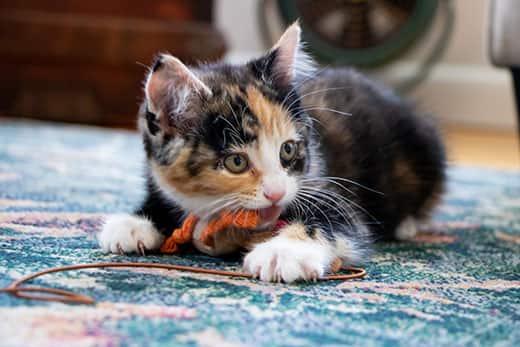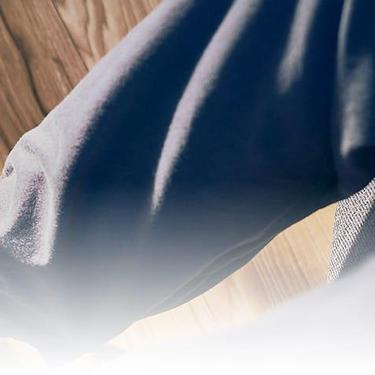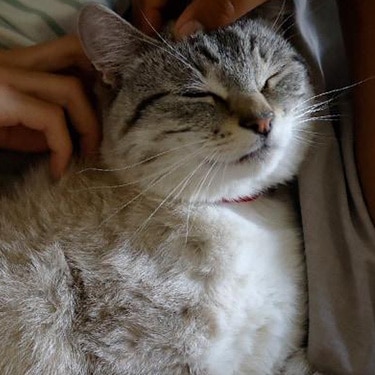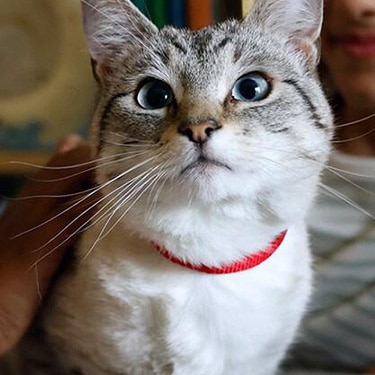
-
Find the right food for your petTake this quiz to see which food may be the best for your furry friend.Find the right food for your petTake this quiz to see which food may be the best for your furry friend.Featured products
 Perfect Digestion Large Breed Puppy Food
Perfect Digestion Large Breed Puppy FoodPrecisely balanced nutrition with Hill's ActivBiome+ prebiotic blend actively contributes to supporting digestive health and overall well-being to help your pet feel their best
Shop Now Small & Mini Mature Adult 7+ Dog Food
Small & Mini Mature Adult 7+ Dog FoodHill's Science Plan Small & Mini Breed Mature Adult Dog Food with Chicken is a complete pet food, specially formulated with ActivBiome+ Multi-Benefit Technology.
Tailored nutrition to support graceful ageing in small dogs. Specially made with a synergistic blend of nutrients for energy & vigor.Shop Now Perfect Digestion Small & Mini Adult Dog Food
Perfect Digestion Small & Mini Adult Dog FoodHill's Science Plan Perfect Digestion Small & Mini Breed Adult Dog Food with Chicken & Brown Rice supports ultimate digestive well-being & a healthy microbiome.
Shop NowFeatured products Hypoallergenic Dry Cat Food
Hypoallergenic Dry Cat FoodHILL'S SCIENCE PLAN Hypoallergenic Adult cat food with egg & insect protein is a complete pet food for adult cat 1–6 years old. It's formulated for cats with delicate skin and stomach, with limited high quality novel protein sources & no grain.
Shop Now Kitten Food
Kitten FoodTender chicken chunks in gravy for kittens, with omega-3s for healthy eye & brain development and high-quality protein to support muscle growth. With balanced minerals to promote strong bones & teeth.
Shop Now Hairball & Perfect Coat Adult Cat Food
Hairball & Perfect Coat Adult Cat FoodHill's Science Plan HAIRBALL & PERFECT COAT Adult cat food with Chicken is specially formulated to effectively help avoid hairball formation in adult cats while promoting a beautiful coat. Thanks to its mix of essential Omega-6 fatty acids, this food benefits the cat's skin and fur keeping them healthy and shiny. Our Advanced Fibre Technology helps reduce hairballs by naturally promoting their passage through the gut. This food is formulated with high-quality protein for a perfectly balanced, great-tasting recipe.
Shop Now -
Dog
- Dog Tips & Articles
-
Health Category
- Weight
- Food & Environmental Sensitivities
- Urinary
- Digestive
- Joint
- Kidney
-
Life Stage
- Puppy Nutrition
- Adult Nutrition
- Senior Nutrition
Cat- Cat Tips & Articles
-
Health Category
- Weight
- Skin & Food Sensitivities
- Urinary
- Digestive
- Kidney
-
Life Stage
- Kitten Nutrition
- Adult Nutrition
Featured articles Pet Food Storage Tips
Pet Food Storage TipsWhere you store your cat and dog food can make a big difference in the quality and freshness once it is opened. Here are some common questions and recommendations for optimal storage for all of Hill’s dry and canned cat and dog food.
Read More The Right Diet For Your Pet
The Right Diet For Your PetLearn what to look for in healthy pet food & nutrition, including ingredients, quality of the manufacturer, your pet's age, and any special needs they have
Read More Understanding Your Pet's Microbiome
Understanding Your Pet's MicrobiomeLearn what a pet's microbiome is, how it contributes to your pet's gut & overall health, and why nutrition is important in maintaining healthy microbiomes.
Read More -


While it takes years for young humans to lose all their baby teeth and wait for their adult chompers to come in, the kitten teething process moves much faster. In fact, by the time they're 6 months old, cats have already cycled through two sets of teeth.
Kitten Teething: An Age Timeline
A kitten's baby teeth, also known as milk or deciduous teeth, first break through when a cat is about 3 or 4 weeks old. The incisors and primary canines come in first, according to Pet Health Network, with the others following in quick succession.
These baby teeth all fall out by the age of 3 to 4 months, making room for the adult teeth to then pop up. Typically, all adult teeth are in place by the time a kitten is 6 months old. Most adult cats have 26 baby teeth and 30 adult teeth.
What Are the Signs of Kitten Teething?
During the kitten teething process, you may not even know that your feline friend is losing teeth until you see one on the floor or in their bed. This is normal, so don't worry! Most cats swallow their teeny teeth but, again, no need to fret — this doesn't cause any harm to a cat.
You also may notice these commons signs of kitten teething:
- Decreased appetite
- Excessive chewing
- Sore, red gums
- Slight bleeding of the gums
- Irritability
- Pawing at their mouth
The experts at the Tufts catnip, emphasises the importance of looking for signs of gingivitis or periodontal disease, such as extremely swollen or bleeding gums and bad breath, as your kitty goes through the teething phase. Occasionally, kittens may have persistent deciduous teeth, meaning that some of their baby teeth did not fall out. This condition is rare but worth keeping an eye out for, as a tooth extraction may be necessary. Consult your veterinarian right away if you notice any of these symptoms so your cat companion can quickly get the treatment they need.


Tasty Tips
How to Help a Teething Kitten
Do kittens teethe with a lot of pain? There's bound to be physical discomfort when pointy teeth are poking through sensitive gums but, according to Greencross Vets, this discomfort is typically minimal.
Your kitten will, however, look for ways to relieve the soreness and irritation associated with teething. They may try to use you as a chew toy, which is never a good idea for either of you. Here, as with other acts of aggressive cat play, redirection is the way to go.

One safe option for a chew toy is a cold wet washcloth, which provides an outlet for excessive chewing and relieves some of the tenderness. Commercially available kitten chew toys are another option, including rubber or soft plastic-based toys that are easy to chew and toys that you can put in the refrigerator. To keep your kitty safe, you should stay with them while they play with it, always follow the toy's directions, keep an eye out for damage and immediately discard damaged toys.
Your kitty may try to chew on furniture legs or electrical cords. This behaviour can be damaging to your belongings but, more importantly, may put your cat in harm's way. "To prevent accidental injury from destructive chewing, cover electrical cords and wires with protective plastic covers," advised experts at Your Cat. They also suggest placing double-sided tape on areas you want to protect from your kitten's razor-sharp teeth.
The Importance of Good Oral Hygiene for Kittens
Dental and gum diseases are common in cats but by investing in your kitty's oral health when they're young, you can help prevent some of these issues down the line.
For starters, establishing a dental care routine with regular checkups and teeth brushing — but after the teething cycle, to avoid additional discomfort — may keep health care costs down and issues like gingivitis, periodontitis and tooth resorption at bay. Teething kittens may prefer canned food or kibble soaked in water if their gums are sore. Once they reach adulthood you can consider feeding them cat food formulated to promote good oral health.
Your kitty may not handle the teething process well, so make sure you show them lots of love, support and patience as these new teeth settle in place.


Christine O'Brien is a writer, mom, and long-time cat parent whose two Russian Blues rule the house. Her work also appears in Care.com, What to Expect, and Fit Pregnancy, where she writes about pets, pregnancy, and family life. Find and follow her on Instagram and Twitter @brovelliobrien.
Related products

Hill's Science Plan HAIRBALL & PERFECT COAT Adult cat food with Chicken is specially formulated to effectively help avoid hairball formation in adult cats while promoting a beautiful coat. Thanks to its mix of essential Omega-6 fatty acids, this food benefits the cat's skin and fur keeping them healthy and shiny. Our Advanced Fibre Technology helps reduce hairballs by naturally promoting their passage through the gut. This food is formulated with high-quality protein for a perfectly balanced, great-tasting recipe.

Hill's Science Plan Adult Cat Food with Chicken is a complete pet food, specially formulated with ActivBiome+ Multi-Benefit Technology.
This food is specially formulated to fuel the energy needs of cats during the prime of their life.

HILL'S SCIENCE PLAN Hypoallergenic Adult cat food with egg & insect protein is a complete pet food for adult cat 1–6 years old. It's formulated for cats with delicate skin and stomach, with limited high quality novel protein sources & no grain.

Tender chicken chunks in gravy for kittens, with omega-3s for healthy eye & brain development and high-quality protein to support muscle growth. With balanced minerals to promote strong bones & teeth.
Related articles

Discover which cat toys games your feline friend might like, and how they are great sources of exercise. Explore our library of articles to learn more.

Find out about how you can support your cat's digestion to boost overall health. Diet is key to a long and happy life for your cat, so discover what you can do.

When learning how to train your cat, you'll start with very basic first steps that both reward good behavior and discourage the bad.

Discover what you can do to spot and support a sensitive cat stomach. See what routines and food you can implement to help your cat be happy and healthy.

Put your cat on a diet without them knowing
Our low calorie formula helps you control your cat's weight. It's packed with high-quality protein for building lean muscles, and made with purposeful ingredients for a flavorful, nutritious meal. Clinically proven antioxidants, Vitamin C+E, help promote a healthy immune system.
Put your cat on a diet without them knowing
Our low calorie formula helps you control your cat's weight. It's packed with high-quality protein for building lean muscles, and made with purposeful ingredients for a flavorful, nutritious meal. Clinically proven antioxidants, Vitamin C+E, help promote a healthy immune system.

